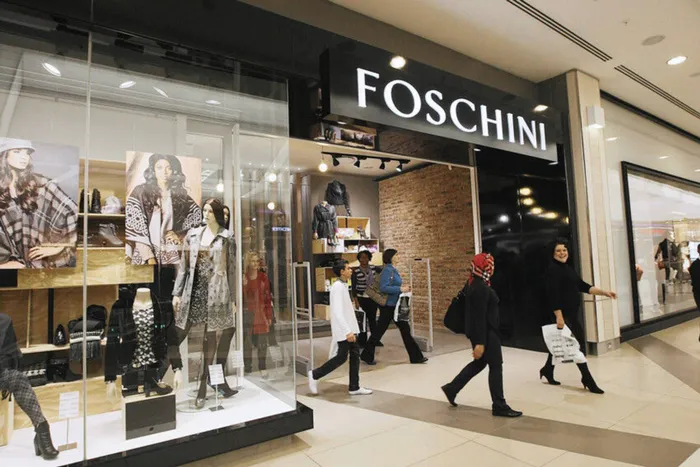
The Foschini Group's online sales rose strongly by 55.3%, contributing 14.7% of total group sales. Operating profit however declined 9.9% to R2.3bn, which management said reflected persistent macroeconomic pressures in South Africa, UK and Australia, and higher promotional intensity across winter months.
Image: Leon Nicholas
The Foschini Group (TFG) share price was among the biggest losers on the JSE Friday, falling by 5.3% after it reported weak trading conditions that saw its interim dividend lowered by 18.8% to 130 cents a share.
The share price traded at R85.55 on Friday afternoon, a price already well down from the R154.23 that it traded at a year before. The lower dividend was even though the group managed to increase revenue by 12.2% to R31.4 billion, supported by the inclusion of White Stuff in the UK - acquired late October 2024 - and growth in TFG Africa.
The group’s management took advantage of the lower share price during the period, which they said was trading at a discount to intrinsic value, and 3.42 million shares were repurchased for R377 million.
Online sales rose strongly by 55.3%, contributing 14.7% of total group sales. Operating profit declined 9.9% to R2.3bn, which management said reflected persistent macroeconomic pressures and higher promotional intensity across winter months.
“The macro environment has been tough for longer than anyone anticipated. June and September were particularly difficult months across our markets. In these conditions, we are focused on taking firm, practical steps to maintain financial discipline, improve efficiency and ensure our key growth areas continue to develop,” said Anthony Thunström, TFG’s CEO.
He said that consumer demand in South Africa was weak and uneven, particularly in June and September, which impacted margins and profitability.
Despite these headwinds, the balance sheet was conservatively managed, investment in growth areas continued, capital to shareholders was returned through share buybacks, and an interim dividend of 130 cents per share was declared.
TFG Africa delivered sales growth of 5.3% whilst holding market shares across the Retail Liaison Committee categories. Beauty continued to perform strongly, with sales growth of 23.6% supported by new ranges and store expansion.
In the UK, White Stuff performed well, contributing to a 69% uplift in segmental sales, while Australia remained subdued in line with the broader retail market.
In response to the trading pressure, actions to strengthen performance would include a review of discretionary expenditure, optimising trading space, tighter inventory management, and operational efficiencies across the supply chain and logistics network. These initiatives would be implemented through the second half of the financial year, said Thunström.
He said they expected that the second half would remain constrained by weak consumer sentiment and competitive trading conditions. He said they would take “clear, deliberate actions to manage costs, optimise the store footprint and build resilience into the business, while advancing growth platforms like Bash, womenswear and beauty.”
“Our priority for the remainder of the year is disciplined execution and efficiency. We will continue to adapt to trading conditions and ensure the group remains well-positioned to capture opportunities as the environment improves,” Thunström said.
In the interim period, in the UK, sales grew by 0.78% excluding White Stuff, but sales trended consistently better throughout the period, with second quarter growth of 4.5% offsetting the 2.6% contraction in the first quarter.
Twenty stores were opened and 35 were closed, with TFG London now trading out of 684 stores in 13 countries.
In Australia, sales during the isix months contracted 0.5% in Australian dollars as discretionary spending remained subdued, but sales started improving, with second quarter growth of 1.6% offsetting the 2.8% contraction in the first quarter. Segmental earnings before interest and tax declined by 18.4%.
In South Africa, 47 stores were opened and 42 were closed, with TFG Africa now trading out of 3,619 stores in 6 countries. While costs were maintained, winter clearance markdowns, necessitated by the tougher than expected trading environment, reduced gross margins, leading to a 9.7% decline in segmental earnings before interest and tax.
Visit:www.businessreport.co.za